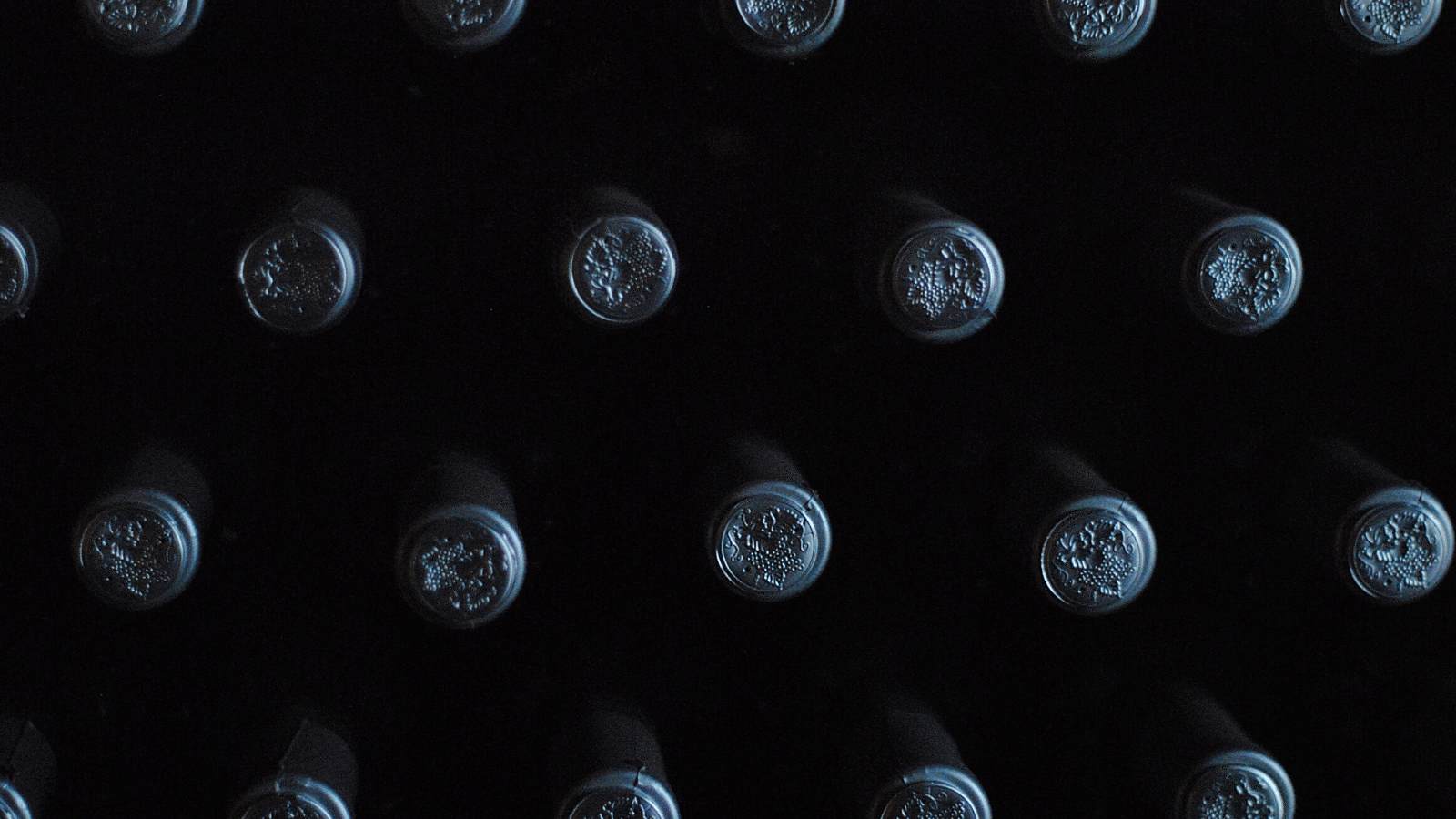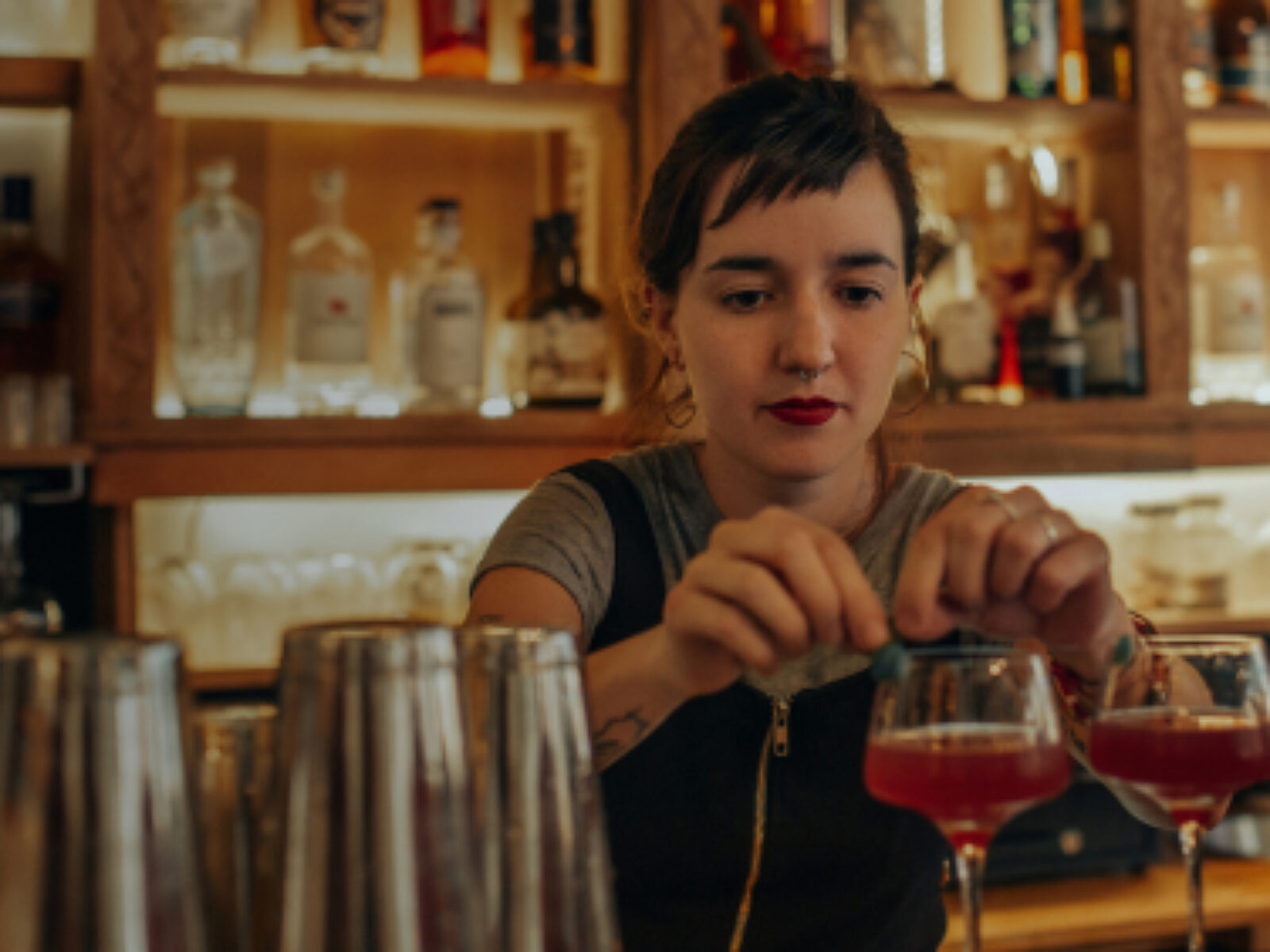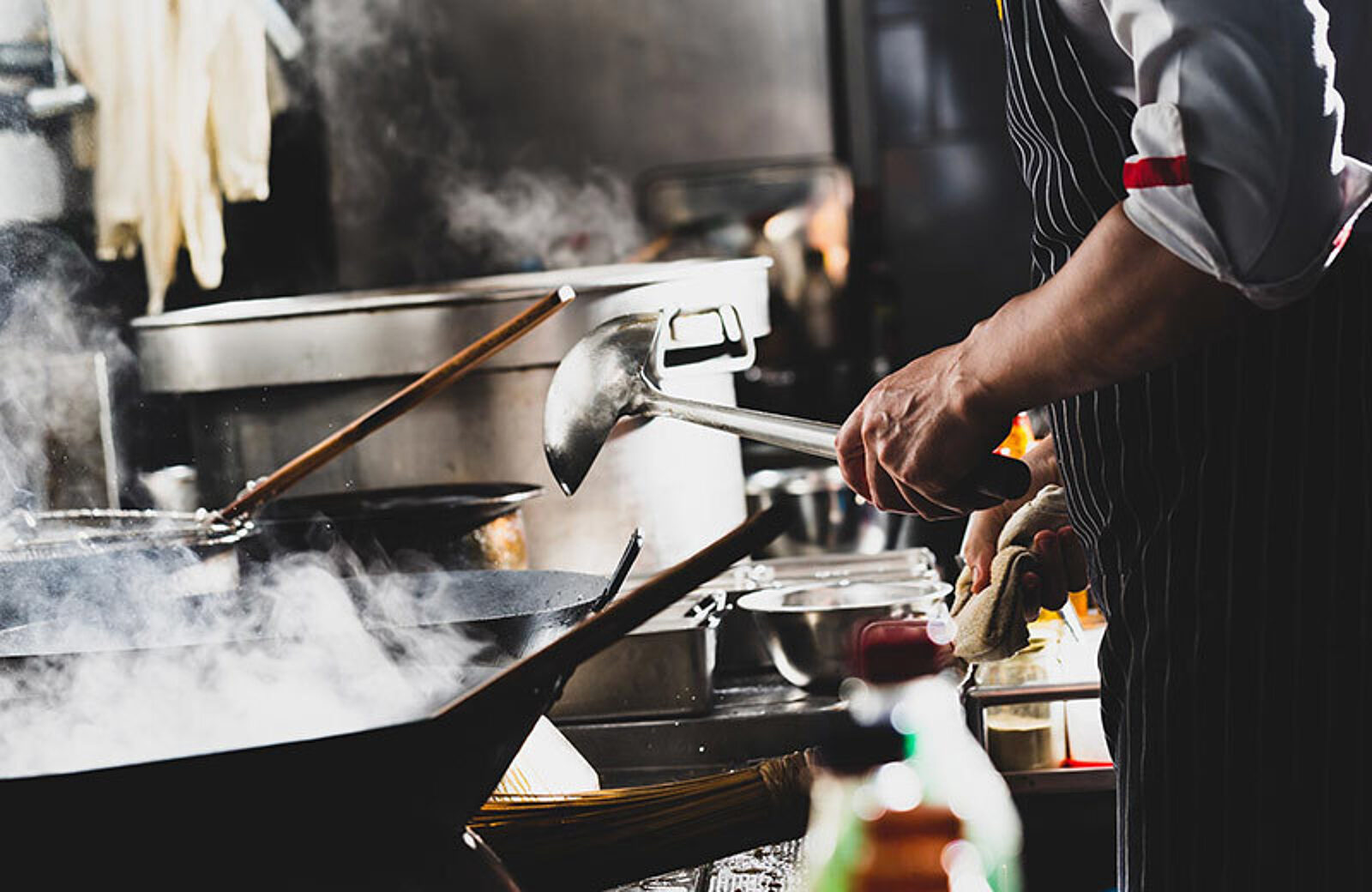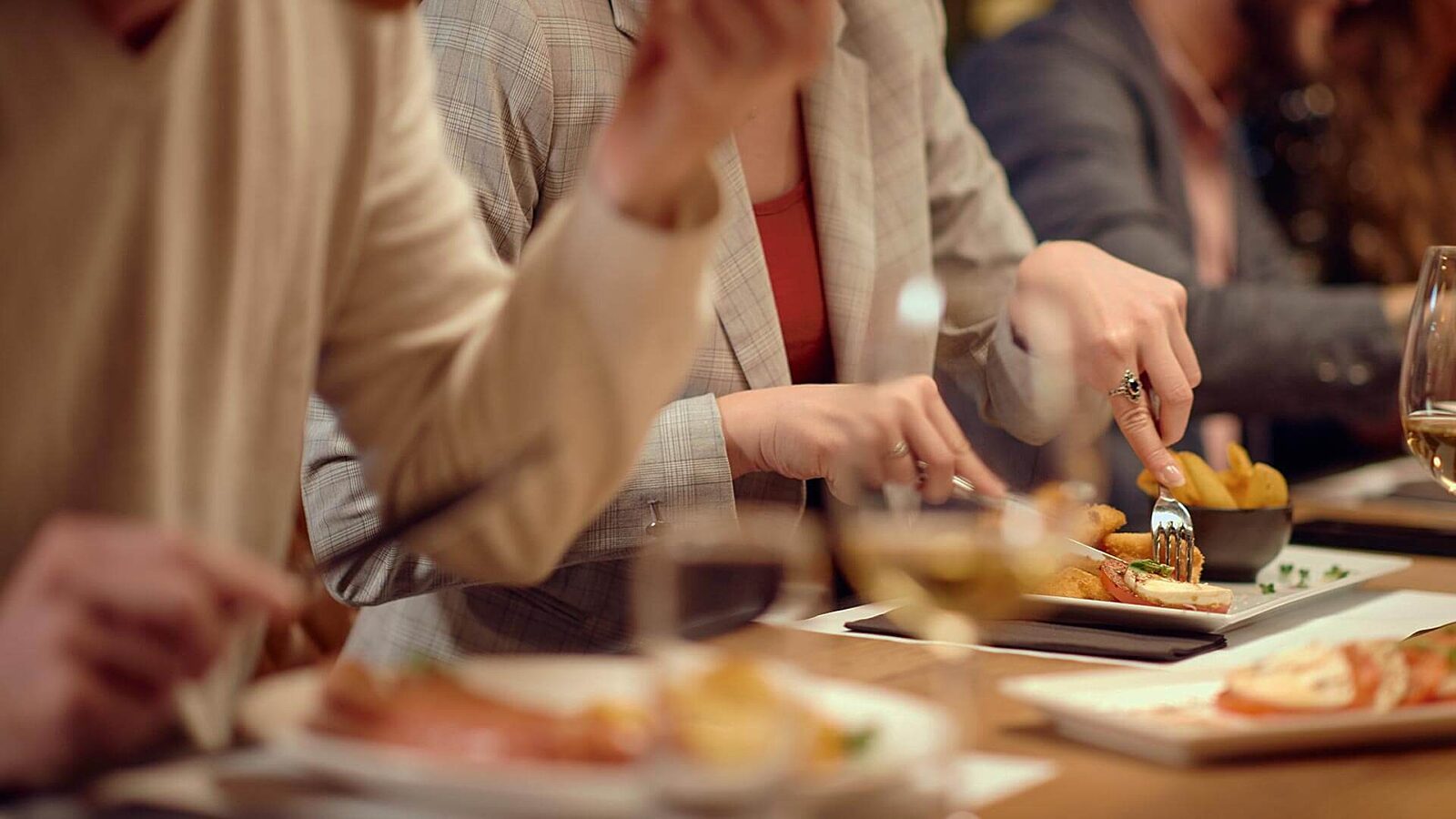
How to Charge a Corkage Fee
If you can't get your hands on a liquor license, try BYOW. Here's what you need to know about corkage fee policies and practices.

Emily NicholsAuthor
If your customers are planning on indulging in a glass of wine with dinner, but you don't have a liquor license — or even if you do and you allow BYO — encouraging guests to bring their own wine is a good way to get more butts in seats.
What is a Corkage Fee and Why Do Restaurants Charge Them?
Restaurants that allow customers to bring their own bottle almost always charge a corkage fee. A corkage fee is the cost restaurants charge to guests who bring their own bottle of wine to a restaurant, instead of ordering from the restaurant. Restaurants use corkage fees to allow guests to bring their own wine, while also charging them a small fee to do so.
Here's why.
1. The Restaurant is Supplying the Service
The first is probably the most obvious. Although your guests are supplying the wine, you're supplying the service.
Former beverage director Sean Park says, “Diners may whine and groan about the upcharge, but the reality of proper wine service is that there’s so much more to it than simply pouring a glass from a bottle.”
Your servers will open the bottle, bring it to temperature, serve in the appropriate stemware, and refill as necessary. For an exceptional bottle, you want these rituals done right so the service is worth paying for.
2. The Restaurant Could Be Losing Money on BYOW
Recouping on beverage costs is reason number two. It may sound trivial, but in the low-margin restaurant game, every dollar counts.
On average, turn times for tables that order wine are longer than turn times for tables that don’t. For that reason, corkage fees encourage diners to only bring a bottle if it’s truly special. No diner wants to spend $35 to serve a $15 bottle, after all.
3. The Restaurant Needs to Mitigate Investments Into Their Wine Program
The third reason for a corkage fee is that many restaurants are trying to help mitigate investments they’ve made in their wine program. Curating an impressive wine list, keeping a sommelier on staff, and training staff on your wine selection are pillars of a reputable program, critical to attracting wine enthusiasts, and expensive.
A.J. Bruno, a sommelier with 10 years experience, explains, “[Guests] often don’t understand that sommeliers painstakingly search for wine that will pair with the food presented by the chef and that it is priced in a way to keep the lights on, rent paid, and hopefully make a small profit as well.”
Charging a corkage fee allows restaurants to give wine enthusiasts the option to bring their own bottle without undercutting the expenses they’re incurring.
Where Can You Expect to Encounter Corkage Fees and How Much Are They?
Fine dining establishments are most likely to have corkage fee policies, though you may also encounter them at some casual full-service restaurants.
While there's no science to the amount a restaurant charges in corkage fees, you can expect the fee to match the level of service. You may find fees anywhere between $10 to $100, or even more. The current fee at The French Laundry, Thomas Keller’s acclaimed Napa restaurant, is a hefty $150 per bottle.
Although perhaps counterintuitive, BYOB establishments tend to have smaller corkage fees or none at all. That’s because the costs and services described earlier are less likely to be present for BYOB operations.
Matt Kaplan, former General Manager at Sweet Basil in Needham, Massachusetts explained some of the perks of their BYOB policies: “We charged $5 a bottle for corkage. Guests love BYOB. It’s more fun, casual, and cheaper, and it helped speed up table turn times.”
Planning on Allowing BYOW? Teach Your Guests to Ask These Questions First.
- Is it allowed? Not all restaurants permit the practice, so know before you go. Call the restaurant or research their policies on the restaurant’s website.
- How much is it? Corkage fees may range broadly depending on the establishment and its location. If you’re price-sensitive, ask first.
- Is there a limit? Some restaurants will put a cap on how many bottles diners may bring. Large parties take note.
- Is the wine already on their list? Even restaurants that permit BYOW may have exception if the wine you’d like to bring is already on their list.
- Can I see the menu? “Food usually dictates your wine, not the other way around,” says Sean Park. Be sure there are options on the menu that will harmonize with wine you’re bringing.
Menu Engineering Course
Take this course to make the most of your menu. Learn about menu psychology and design, managing your menu online, and adapting your menu to increase sales.

Corkage Fee Etiquette: What Your Guests Should Know
- Arguing with an establishment over a corkage fee is a surefire way to turn a meal out into sour grapes. Ask the questions above ahead of time and avoid any unexpected surprises.
- To tip or not to tip? Wine experts from Wine Spectator and the Wall Street Journal agree it’s good practice to tip on bottle as if you purchased it at the restaurant to account for time and care spent on service.
- Have something really special? Consider sharing a sip with your server or sommelier. From one wine lover to another, the gesture will be appreciated.
Corkage Fee Laws
It's not legal in every state to allow guests to bring their own beer or wine. States like Arizona, Colorado, New Mexico, Illinois, and Massachusetts have laws that make it illegal to bring an alcoholic beverage into a restaurant. In some cases, like Colorado, it's illegal no matter what, and restaurants could lose their liquor licenses as a result. In others, it's only illegal if the restaurant doesn't have an alcohol license. With no alcohol license, there's no alcohol allowed on the premises at all, even if guests are bringing it.
Always check your state's laws before offering a corkage fee.
Related Restaurant Resources
Is this article helpful?
DISCLAIMER: This information is provided for general informational purposes only, and publication does not constitute an endorsement. Toast does not warrant the accuracy or completeness of any information, text, graphics, links, or other items contained within this content. Toast does not guarantee you will achieve any specific results if you follow any advice herein. It may be advisable for you to consult with a professional such as a lawyer, accountant, or business advisor for advice specific to your situation.
Read More
Subscribe to On the Line
Sign up to get industry intel, advice, tools, and honest takes from real people tackling their restaurants’ greatest challenges.


